Byway: easing booking headaches to promote sustainable travel
7 min readView from the Bernina Express is a renowned railway journey that traverses UNESCO World Heritage Sites and Alpine landscapes. Byway
On a mission to ‘make flight-free travel mainstream,’ Byway, a sustainability-driven travel company based in the UK, offers bespoke rail travel experiences and accommodation options for leisure travellers. In a recent interview with RailTech, founder and CEO Cat Jones delves into emerging travel trends and the company’s forthcoming expansion into North America.
With a physics degree in hand, Cat Jones set out to travel the world. After exploring South America, mostly by minibus, she and her partner launched a website to facilitate tour bookings in Bolivia, “where we had struggled to book tours ourselves when we had been there,” Jones tells RailTech. Running this business out of an apartment in the Malay capital of Kuala Lumpur thus marked her first foray into the travel industry, which she describes as a “rich learning experience.”

Gaining industry insight through her work at the British media start-up Unruly, in various commercial and product roles, as well as at Founders Factory, as managing director, she also obtained a Master’s degree in sustainable development at the School of Oriental and African Studies in London. Observing trends including the increasing importance of sustainability in consumer decision-making, the rise of slow food and fashion movements, and the desire for authentic travel experiences “off the beaten path,” Cat Jones saw an opportunity to address challenges in the travel industry and promote sustainable travel practices.
With the onset of the COVID-19 pandemic, global travel ground to a halt and lockdown measures were announced. Jones recognized the travel industry as being on the brink of unprecedented change. This was the final push. She handed in her resignation in March 2020 and founded Byway, bringing together her love of authentic travel, her passion for sustainability, and her start-up experience. Her goal? Leveraging innovative technology to promote modal shift to rail for leisure travellers and “helping people to discover slow travel and love the journey, not just a destination,” says Jones.

Tailor-made travel itineraries
Byway, with its package holiday model, aims to simplify the process of booking multi-country train (as well as bus and ferry) journeys, addressing the complexities and inconsistencies inherent in traditional rail travel booking systems. The platform is the first to offer personalised trip itineraries tailored to individual preferences, providing a ‘hassle-free’ travel experience that steers clear of conventional tourist routes.
At the antithesis of “cookie-cutter tourism,” Byway’s tailored travel experiences and accommodation options are facilitated by the JourneyAI technology developed in-house with the help of a grant from Innovate UK. Journey AI boasts a dynamic packaging system reminiscent of industry giants like Expedia, but with a twist—it seamlessly integrates multiple modes of transportation and ventures off the beaten path.
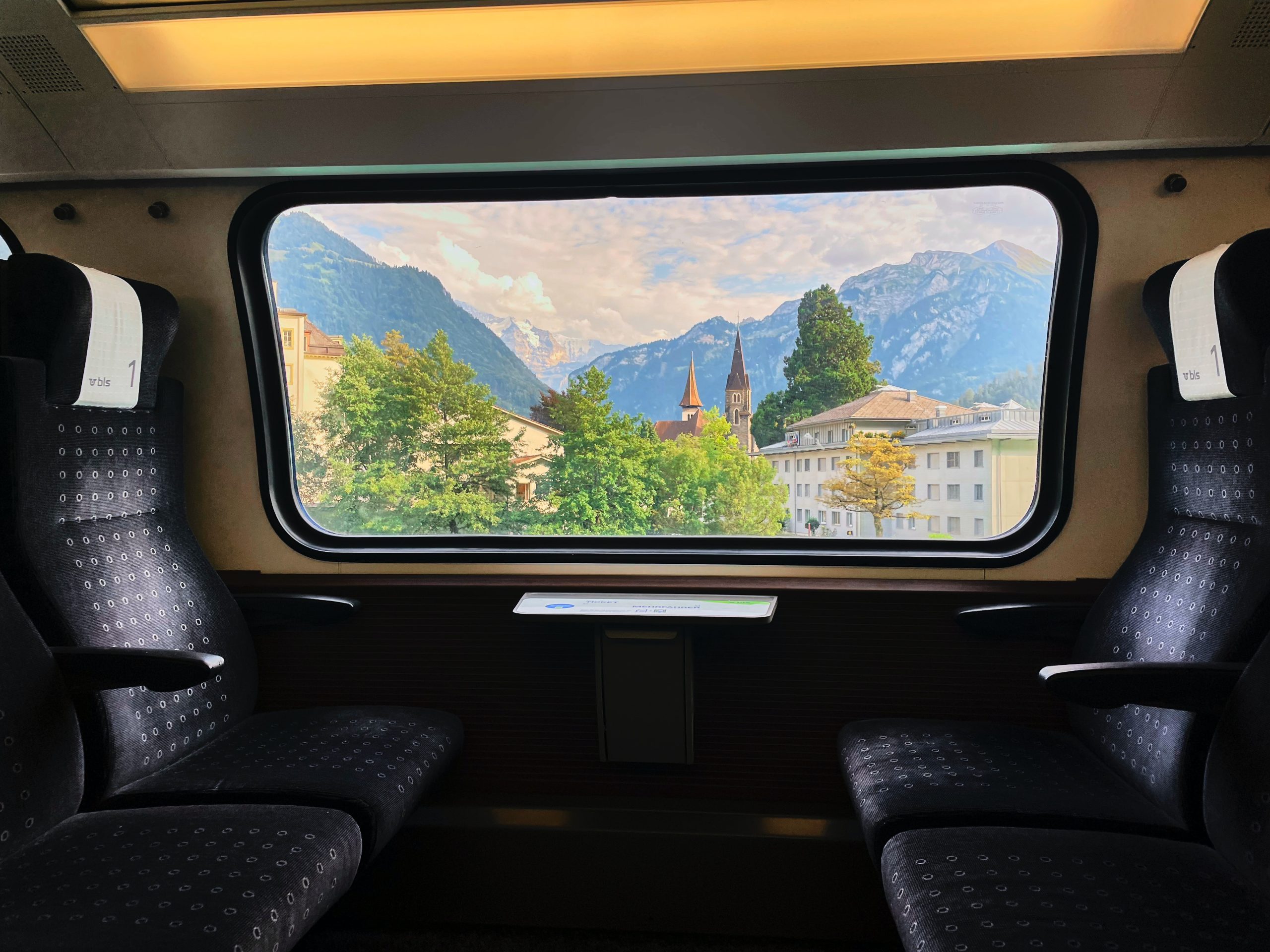
Practical considerations are taken into account by the software, based on user profile and preferences. “If a family is travelling with children, we won’t book them for an 11 PM departure, for instance,” she illustrates. JourneyAI also optimises the route “for enjoyment.” Collaborating closely with local experts and seasoned journalists, Journey AI sculpts the route you take with what Jones describes as “little nodes of experience,” selecting activities, accommodations, restaurants and destinations that resonate with each traveller’s desires. Additionally, the software adapts the itinerary around changes made by the traveller, and any travel delays or cancellations. Byway also provides on-demand support via WhatsApp throughout the journey. “To our knowledge, there are no competitors offering a similar level of personalised trip planning in the rail travel sector,” posits Jones.
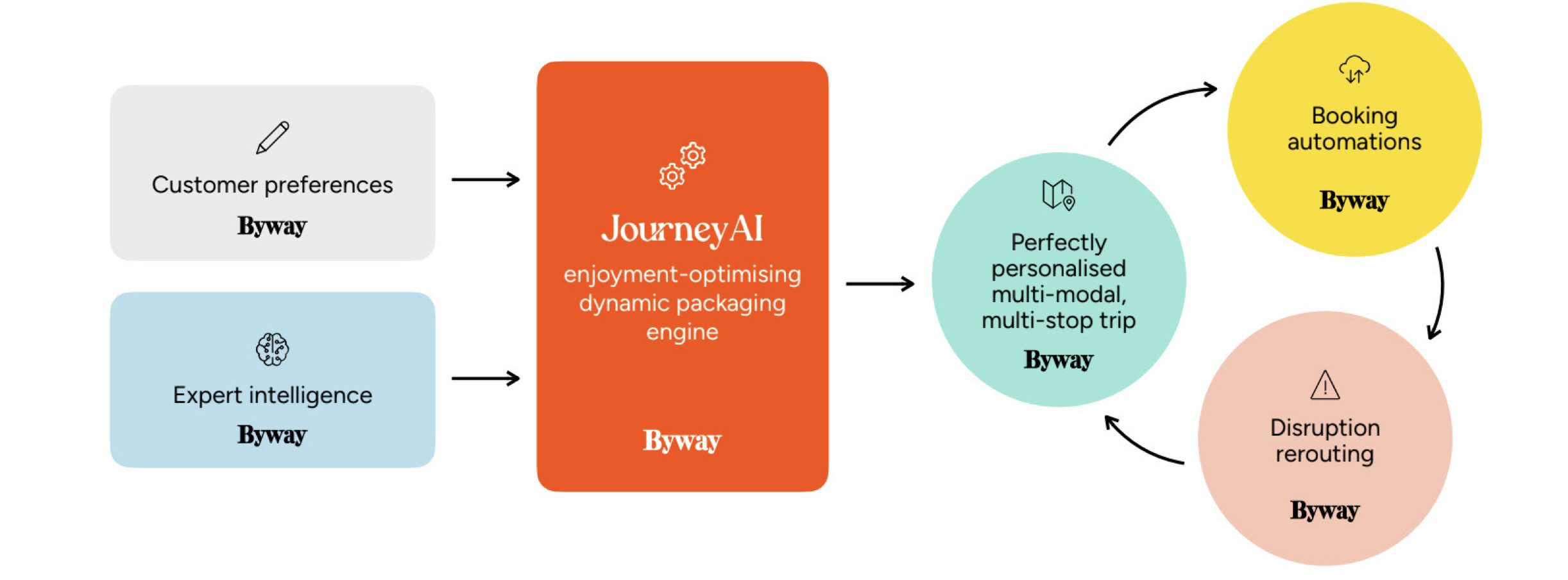
Demand for seamless ticket booking
This product offering responds to customers’ desire to travel without the stress of managing a myriad of bookings. Leisure rail travel has experienced a strong boost in Europe and the United Kingdom, post-COVID-19 pandemic. Byway’s success not only highlights the increasing demand for leisure travel by rail, increased convenience and support in booking such trips. “Improving ticket availability and planning horizons for leisure travellers is essential to enhance the overall rail travel experience,” says Jones.
Despite the EU’s dense railway network, the challenge of booking train tickets across multiple countries has been a longstanding issue for passengers. This challenge is further counterintuitively exacerbated by the liberalisation of the EU passenger rail market, in the sense that though new operators have increased the available offer for consumers, the purchasing of tickets is even more fragmented over various purchasing websites.
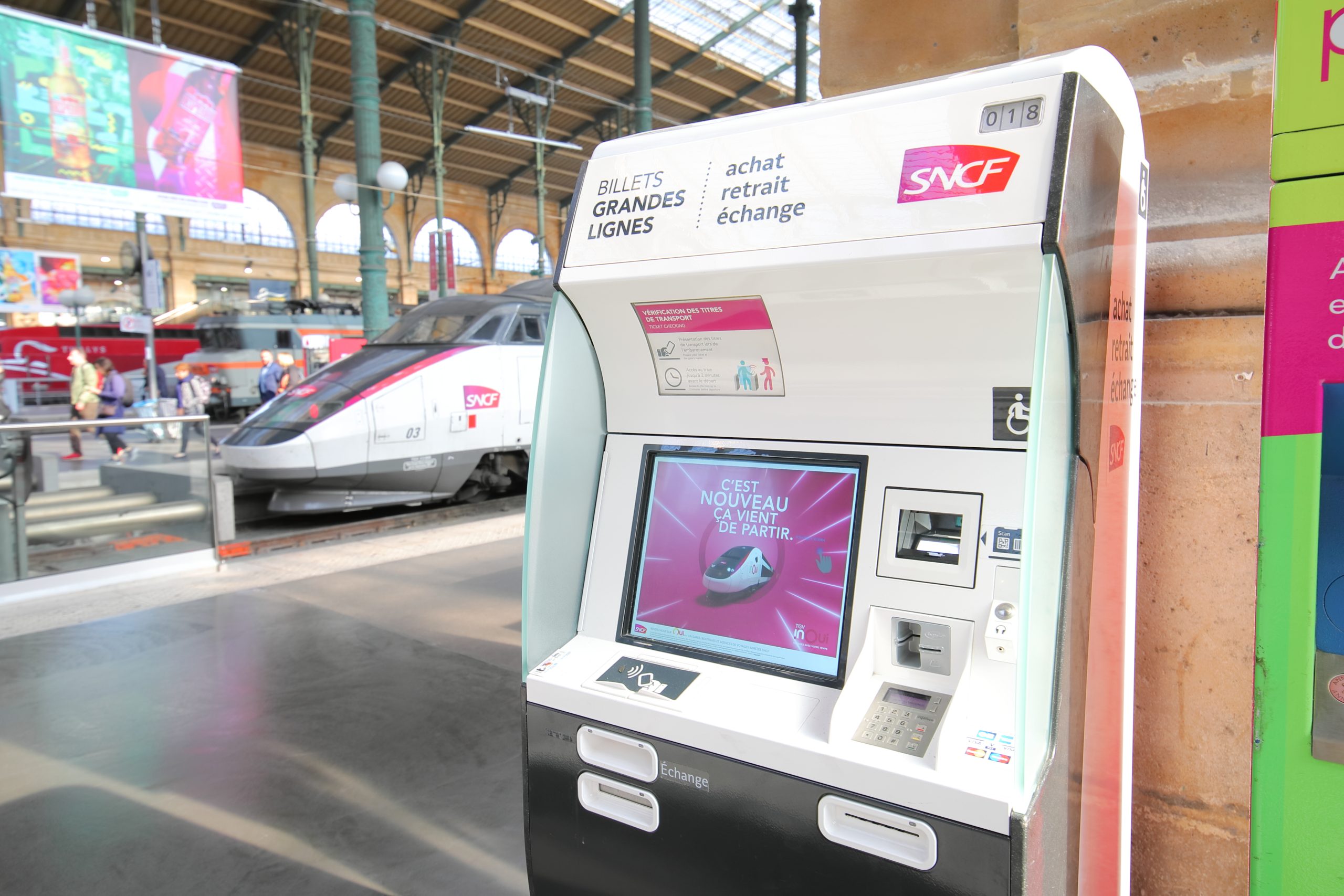
Lack of cooperation between different operators also brings higher risk to booking connecting journeys, as there is less protection in case of delays and cancellations. Indeed, following Brexit, the absence of EU regulations and assurances introduces uncertainties, particularly concerning cross-border travel arrangements. Facilitating a smooth, cross-border rail ticket booking experience for consumers, and improving support and both real and perceived traveller protection between the UK and the European Union (EU), would appear to be helpful in the promotion of modal shift to rail.
Promoting sustainable mobility
According to the European Environment Agency, rail travel accounts for 14 grams of CO2 emissions per passenger kilometre (23 grams per passenger mile), which is dwarfed by the 285 grams generated by air travel, and the 158 grams per passenger kilometre (254 grams per passenger mile) from journeys in cars. Byway estimates have diverted a significant number of potential air travellers over the past year, thus contributing to fewer CO2 emissions.
Between 2023 and 2024, 3390 passengers opted to travel with Byway, saving 1539 flights, or 757 tonnes of CO2, according to Byways impact report. This equates to 4545 trees’ worth of impact, according to Byway’s calculations. Another key highlight is that 40 per cent of Byway customers would have flown if they hadn’t taken a Byway trip, up from 27 per cent last year. Byway also launched 10 new regions this year. “Our growth reflects a growing demand for sustainable and experiential travel options,” stresses Jones.
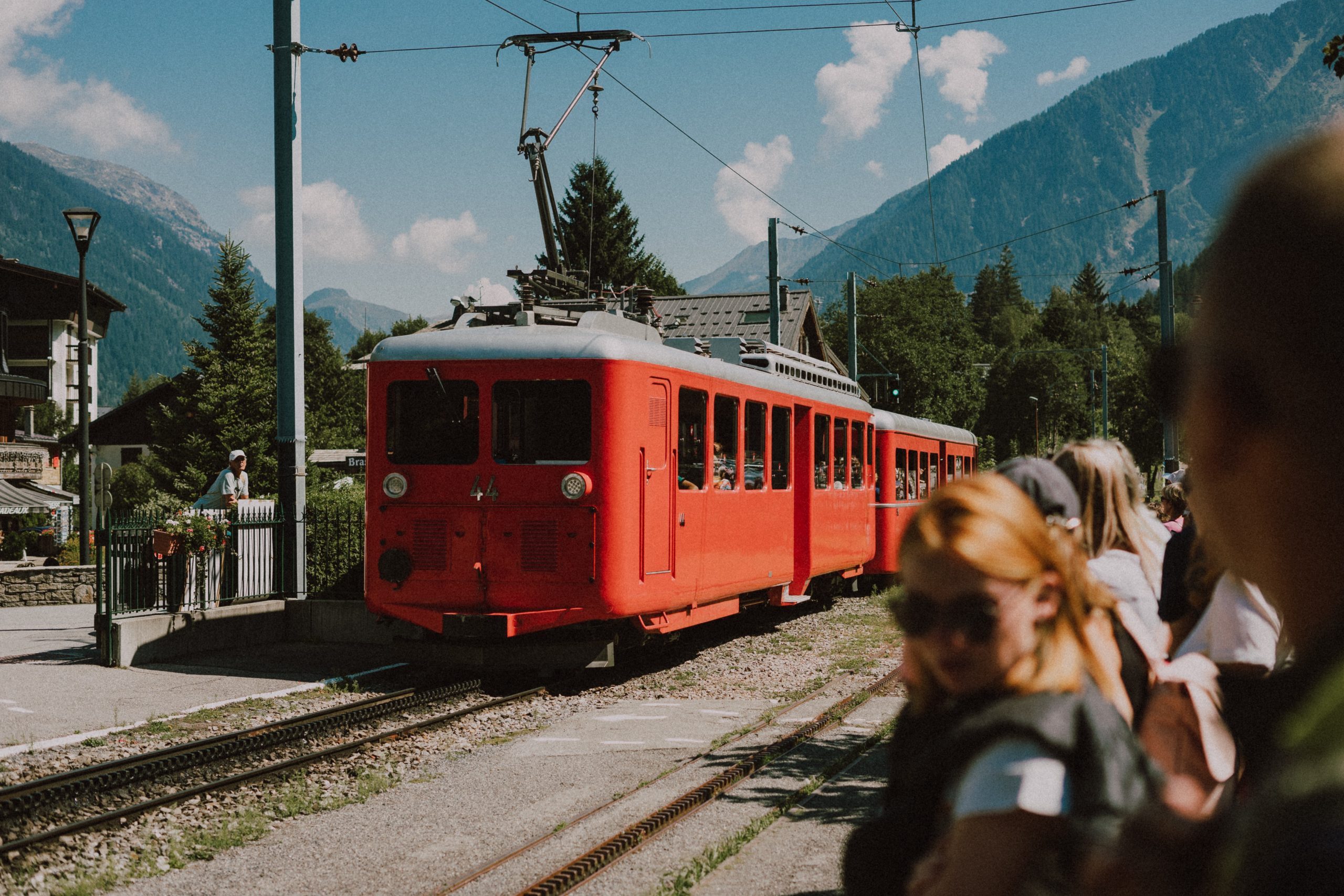
As a certified B Corporation, Byway is committed to helping accelerate the world’s transition to sustainable travel. The company is actively engaging with policymakers to advocate for policies that promote accessible and affordable overland travel options for UK customers. “We need greater government support for the rail industry, focusing on subsidies and tax breaks to make rail travel more competitive with air travel,” states Jones. “We also look to initiatives in other European countries, such as France, where there is a strong emphasis on prioritising train travel over air travel for short distances.”
In future, Byway aims to streamline its carbon reporting process by implementing a carbon savings report dashboard, facilitating quarterly updates for both the team and the Board. Additionally, the company plans to enhance its technology to enable customers to compare route options based on carbon emissions, with a focus on carbon labelling for each route. By monitoring the carbon footprint of its internal tech and researching the carbon output of team travel and office usage, Byway aims to gain a comprehensive understanding of its environmental impact. Furthermore, the company intends to engage in activism and community campaigns to advocate for flight-free travel options, aligning with its commitment to sustainability.
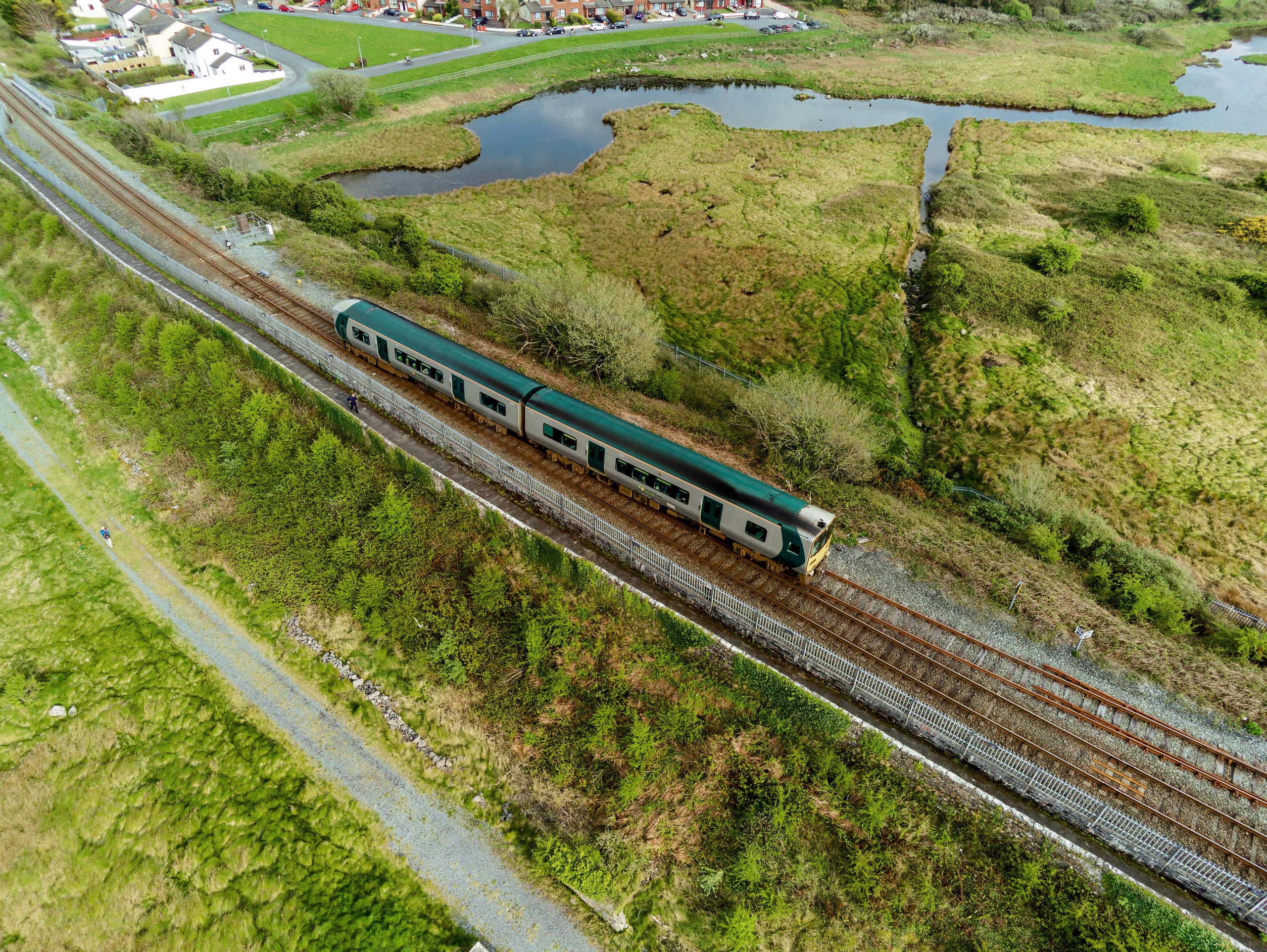
Growth and expansion into North America
To Jones, Byway’s growth can be attributed to several factors, including increasing interest in sustainable travel, post-pandemic travel resurgence, and the appeal of personalised travel experiences. “We believe that the evolution of leisure travel towards more experiential and sustainable options will continue to drive demand for rail-based journeys,” comments Jones. “While sustainability is a significant consideration for many travellers, the primary driver remains the desire for unique and memorable travel experiences, which rail travel uniquely offers,” she adds.
Byway appeals to “a diverse demographic, including solo travellers, couples, and families,” according to Jones. Byway holidays are categorised based on duration, with 10 to 14 days emerging as the most popular time frame, closely followed by 5 to 9 days. This data underscores a growing appetite for leisurely stays, allowing travellers to savour the trip and destinations at a relaxed pace. London’s bustling St. Pancras International and Paris’ historic Gare du Nord serve as pivotal departure points, being the most popular arrival and departure points for Byway trips. Analysing travel trends, Byway reveals that the Eurostar is the preferred mode of transit for the majority of Byway voyagers embarking on European escapades.
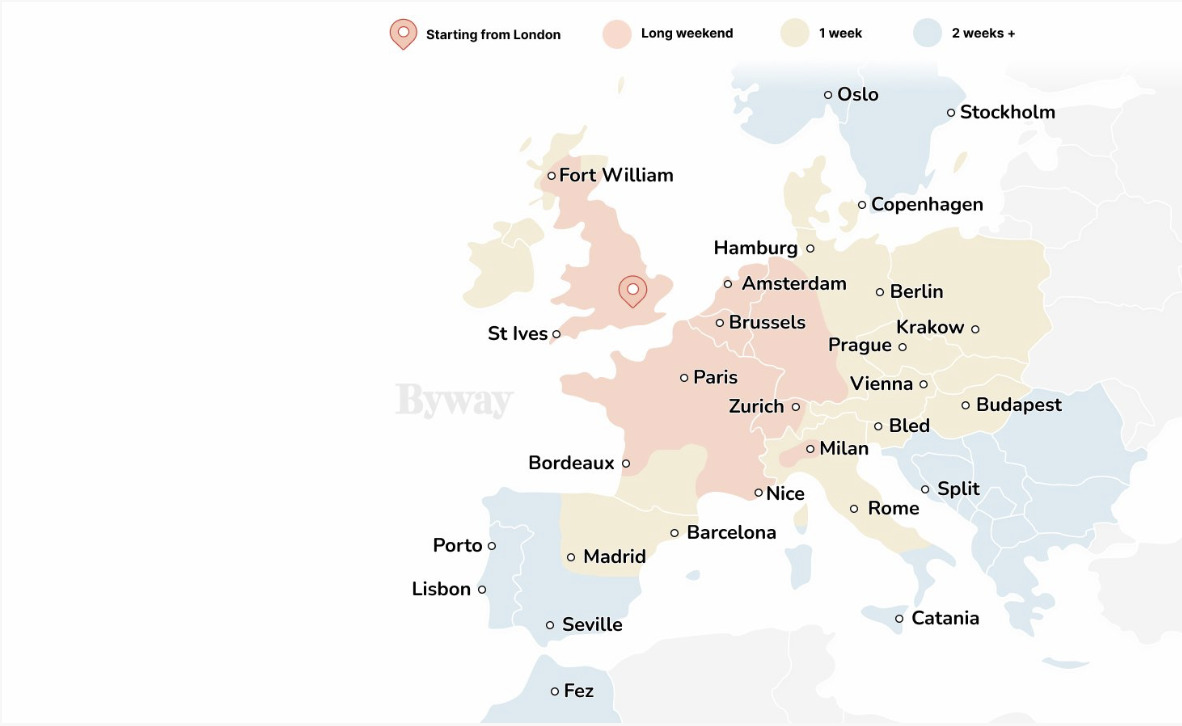
Following Byway’s success in Europe, Jones shared that the company will soon be expanding into the North American market. Byway plans to introduce a luxury product and commence sales in both the EU and American markets, focusing on individuals who are already travelling to Europe rather than attempting to persuade them to fly. “Various ideas for Canadian products for American consumers” are also in development, concludes Jones.
Further reading:


